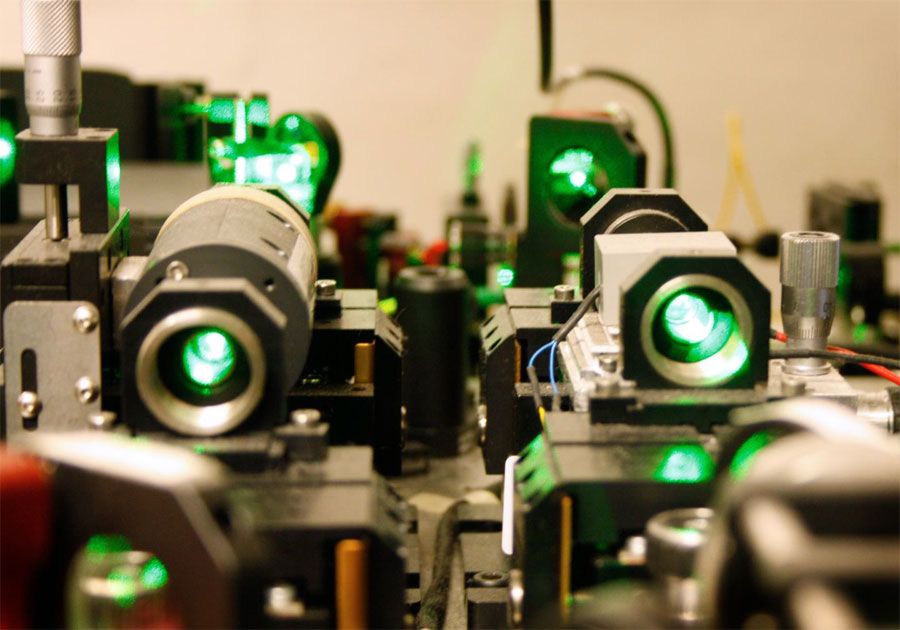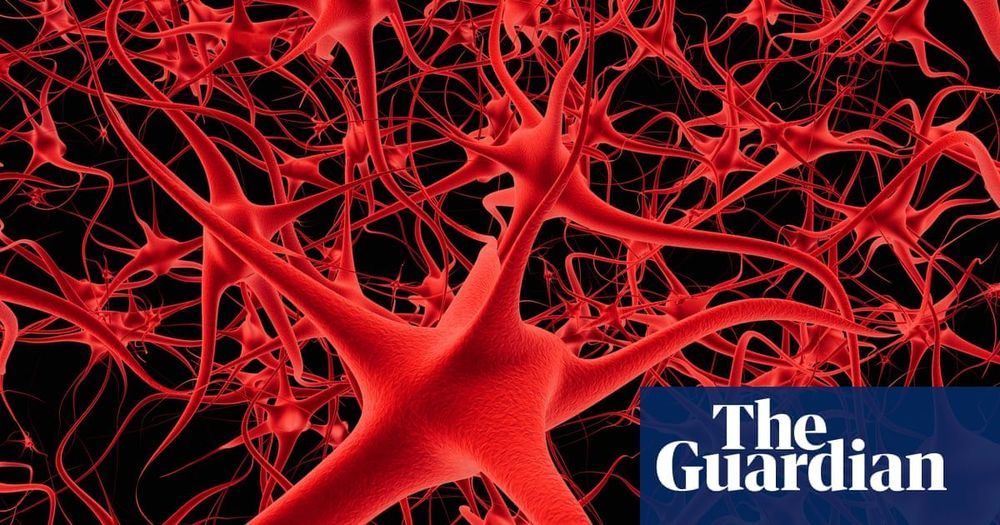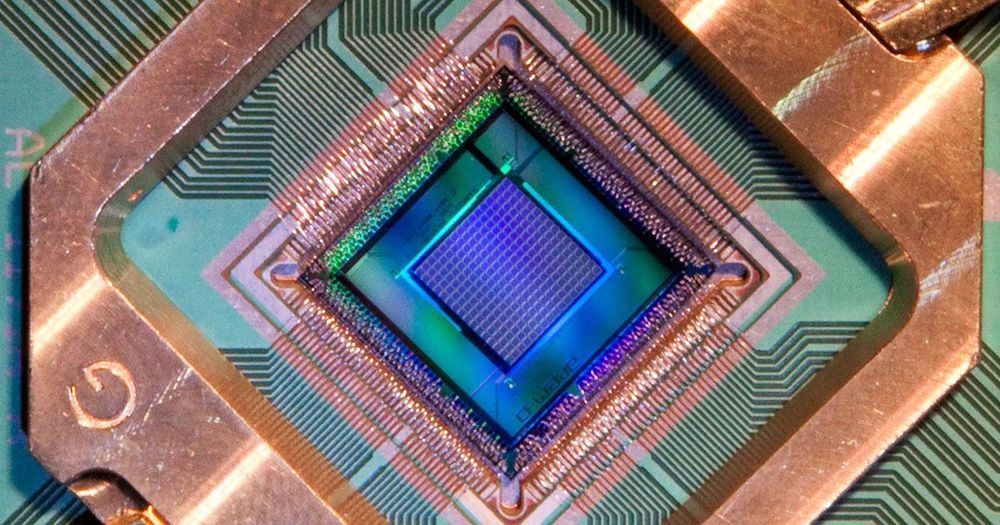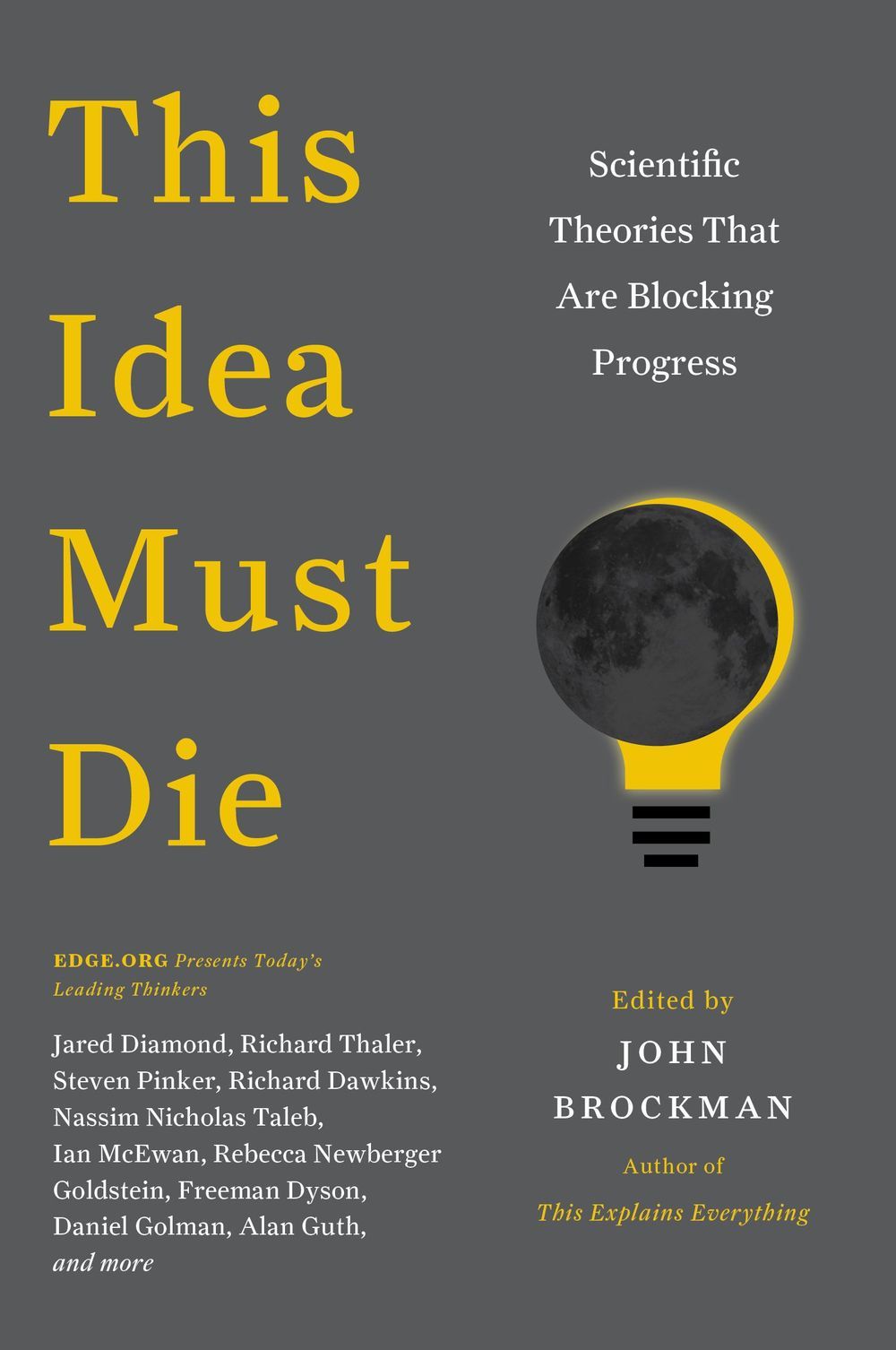Page 8163
Feb 15, 2019
How quantum terrorists could bring down the future internet
Posted by Quinn Sena in categories: internet, quantum physics, terrorism
Malicious actors could exploit the laws of quantum mechanics to destroy quantum information on a global scale, say physicists.
Feb 15, 2019
Single Photon Reveals Quantum Entanglement of 16 Million Atoms
Posted by Quinn Sena in categories: particle physics, quantum physics
Scientists have demonstrated entanglement between 16 million atoms in a crystal crossed by a single photon, reinforcing the quantum theory that entanglement can persist in macroscopic physical systems.
Feb 15, 2019
One step closer to complex quantum teleportation
Posted by Quinn Sena in categories: encryption, information science, quantum physics, robotics/AI
Circa 2018
The experimental mastery of complex quantum systems is required for future technologies like quantum computers and quantum encryption. Scientists from the University of Vienna and the Austrian Academy of Sciences have broken new ground. They sought to use more complex quantum systems than two-dimensionally entangled qubits and thus can increase the information capacity with the same number of particles. The developed methods and technologies could in the future enable the teleportation of complex quantum systems. The results of their work, “Experimental Greenberger-Horne-Zeilinger entanglement beyond qubits,” is published recently in the renowned journal Nature Photonics.
Similar to bits in conventional computers, qubits are the smallest unit of information in quantum systems. Big companies like Google and IBM are competing with research institutes around the world to produce an increasing number of entangled qubits and develop a functioning quantum computer. But a research group at the University of Vienna and the Austrian Academy of Sciences is pursuing a new path to increase the information capacity of complex quantum systems.
Continue reading “One step closer to complex quantum teleportation” »
Feb 15, 2019
3D-printed Mars habitat could be a perfect fit for early SpaceX Starship colonies
Posted by Quinn Sena in categories: 3D printing, habitats, robotics/AI, space travel, sustainability

Space architecture startup AI SpaceFactory achieved second place in the latest phase of a NASA-led competition, pitting several groups against each other in pursuit of designing a 3D-printed Mars habitat and physically demonstrating some of the technologies needed to build them.
With a focus on ease of scalable 3D-printing and inhabitants’ quality of life, as well as the use of modular imported goods like windows and airlocks, MARSHA lends itself impeccably well to SpaceX’s goal of developing a sustainable human presence on Mars as quickly, safely, and affordably as possible with the support of its Starship/Super Heavy launch vehicle.
Feb 15, 2019
Bill Gates Funds Tiny Robot Surgeons That Operate Inside the Body
Posted by Quinn Sena in categories: biotech/medical, education, robotics/AI
Feb 15, 2019
New drug raises hopes of reversing memory loss in old age
Posted by Quinn Sena in categories: biotech/medical, neuroscience
An experimental drug that bolsters ailing brain cells has raised hopes of a treatment for memory loss, poor decision making and other mental impairments that often strike in old age.
The drug could be taken as a daily pill by over-55s if clinical trials, which are expected to start within two years, show that the medicine is safe and effective at preventing memory lapses.
Tests in the lab showed that old animals had far better memory skills half an hour after receiving the drug. After two months on the treatment, brain cells which had shrunk in the animals had grown back, scientists found.
Continue reading “New drug raises hopes of reversing memory loss in old age” »
Circa 2010
A laser has been used to generate small clouds on demand in lab, and real-world experiments suggest this could be a way to call down rain when it’s needed.
People have experimented with cloud seeding for decades in the hope of boosting rainfall, usually by sprinkling silver iodide crystals into clouds high in the atmosphere.
Feb 15, 2019
D-Wave Launches Free Quantum Cloud Service
Posted by Quinn Sena in category: quantum physics
Circa 2018
Canadian company joins IBM and Rigetti in offering online access to pricey hardware.
Feb 15, 2019
Everything will change with the advent of the laptop quantum computer (QC)
Posted by Quinn Sena in categories: computing, information science, neuroscience, quantum physics
The transition from PCs to QCs will not merely continue the doubling of computing power, in accord with Moore’s Law. It will induce a paradigm shift, both in the power of computing (at least for certain problems) and in the conceptual frameworks we use to understand computation, intelligence, neuroscience, social interactions, and sensory perception.
Today’s PCs depend, of course, on quantum mechanics for their proper operation. But their computations do not exploit two computational resources unique to quantum theory: superposition and entanglement. To call them computational resources is already a major conceptual shift. Until recently, superposition and entanglement have been regarded primarily as mathematically well-defined by psychologically incomprehensible oddities of the quantum world—fodder for interminable and apparently unfruitful philosophical debate. But they turn out to be more than idle curiosities. They are bona fide computational resources that can solve certain problems that are intractable with classical computers. The best known example is Peter Shor’s quantum algorithm which can, in principle, break encryptions that are impenetrable to classical algorithms.
The issue is the “in principle” part. Quantum theory is well established and quantum computation, although a relatively young discipline, has an impressive array of algorithms that can in principle run circles around classical algorithms on several important problems. But what about in practice? Not yet, and not by a long shot. There are formidable materials-science problems that must be solved—such as instantiating quantum bits (qubits) and quantum gates, and avoiding an unwanted noise called decoherence—before the promise of quantum computation can be fulfilled by tangible quantum computers. Many experts bet the problems can’t adequately be solved. I think this bet is premature. We will have laptop QCs, and they will transform our world.

















